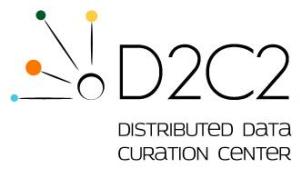 Purdue University Libraries (PUL) and its Distributed Data Curation Center partnered with the Purdue University e-Pubs Repository recently to launch the Data Curation Profiles Directory, an online resource that will track research data management projects at academic libraries.
Purdue University Libraries (PUL) and its Distributed Data Curation Center partnered with the Purdue University e-Pubs Repository recently to launch the Data Curation Profiles Directory, an online resource that will track research data management projects at academic libraries.
The management of research data is an emerging field, and many academic librarians have begun working with researchers to preserve and share research data sets. With funding from a 2010 grant from the Institute of Museum and Library Services (IMLS), PUL developed the Data Curation Profiles Toolkit. This toolkit helps librarians capture and organize information about those research data sets as articulated by the researchers themselves, regardless of their field. It then offers guidance on how to create a data set profile. As a directory of data set profiles generated by this toolkit, the new Data Curation Profiles Directory marks the latest step in the project.
“Data Curation Profiles tell the story about a research data set from the researcher’s perspective,” D. Scott Brandt, Associate Dean for Research and Professor of Library Science, wrote this week in an IMLS Up Next blog post about the directory. “Profiles contain contact information for the creator of the data set and give key information about what the data set includes, how it is encoded, who its audience is, conditions for use, and much more. The Directory already contains profiles representing a variety of disciplines: for example, history, architecture, sociology, seismology, plant genetics, and food technology.”
Brandt adds that PUL previously had simply posted all submitted profiles to the DCP Toolkit website, but the library “started wondering how sustainable that would be. We also wanted to develop a means for authors of DCPs to have their work recognized as scholarship in the library field.”
The new directory offers more tools to support and encourage publication of data curation profiles, “including the assignment of a permanent identification number using the Digital Object Identifier (DOI) system, as well as a citation for each published profile, improved visibility through indexing and new discovery tools for each profile, and finally the implementation of CLOCKSS and Portico to provide a digital archive service for profiles that are added to the directory service,” he writes. “Epic gain!”


